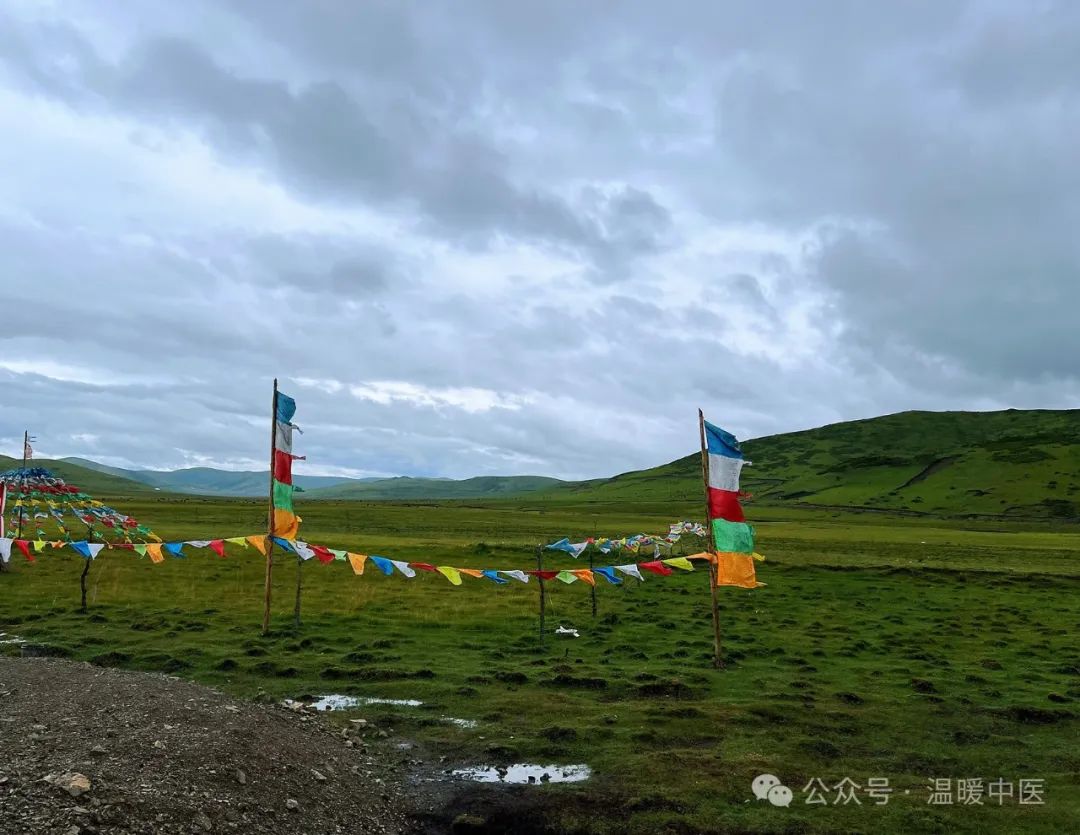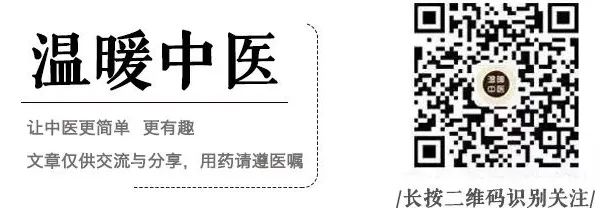
Click the blue text above to follow us

Written by: Warm TCM
In life, having great aspirations leads to great achievements.
■
Today we will discuss the dampness evil among the six evils in Traditional Chinese Medicine (TCM), specifically a condition known as Cold Dampness Obstructing the Spleen.
This can be understood as the accumulation of cold dampness in the spleen and stomach, which hinders their functions, manifesting as symptoms of spleen and stomach deficiency.
We know that dampness is sticky and tends to conspire with other evils; when dampness encounters cold, it becomes cold dampness. If a person consumes cold or raw foods excessively, it can lead to Cold Dampness obstructing the spleen.
In this case, a Chinese patent medicine called Xiang Sha Yang Wei Wan (香砂养胃丸) can be used.
Xiang Sha Yang Wei Wan: Mu Xiang (木香), Sha Ren (砂仁), Dou Kou (豆蔻), Fu Ling (茯苓), Bai Zhu (白术), Ban Xia (半夏), Xiang Fu (香附), Zhi Shi (枳实), Chen Pi (陈皮), Hou Po (厚朴), Huo Xiang (藿香), Gan Cao (甘草), Sheng Jiang (生姜), Da Zao (大枣)
Bai Zhu (White Atractylodes) is known for strengthening the spleen, and in TCM, there is a saying that Bai Zhu is as valuable as Ren Shen (Ginseng). This highlights Bai Zhu’s high medicinal value. We know that the spleen belongs to the earth element, which is afraid of water; when there is too much water, the land gets flooded, so the spleen fears dampness. When cold dampness obstructs the spleen and stomach, their functions cannot operate properly. To restore the functions of the spleen and stomach, Bai Zhu is an excellent choice, as it has a fragrant aroma that helps strengthen the spleen and promote transformation.
When Bai Zhu is combined with Chen Pi (Chen Pi), Hou Po (厚朴), and Gan Cao (甘草), it forms Ping Wei Wan (平胃丸), a well-known dampness-dispelling formula in TCM. Its main function is to promote qi and transform dampness. The original formula consists of Cang Zhu (苍术), Hou Po, Chen Pi, and Gan Cao, where Bai Zhu replaces Cang Zhu.Although Cang Zhu and Bai Zhu are two different herbs, they are closely related and have similar effects, historically referred to collectively as “Zhu”.
Cang Zhu (苍术) and Bai Zhu (白术) both strengthen the spleen and dispel dampness. If Cang Zhu is used, the dampness-dispelling effect will be stronger; if Bai Zhu is used, the focus is more on its spleen-strengthening properties. While the earth element fears water, it can also treat water; when the spleen and stomach regain their function, they can transform and eliminate dampness.
Additionally, Fu Ling (茯苓) strengthens the spleen and dispels dampness, Ban Xia (半夏) resolves phlegm and dries dampness, and Huo Xiang (藿香) and Dou Kou (豆蔻) are aromatic herbs that also dispel dampness. In this combination, Fu Ling has a neutral nature, with almost no cold or heat bias, making it suitable for dispelling dampness whether it encounters cold or heat. Huo Xiang is slightly warm, while Dou Kou and Ban Xia are warm and pungent, primarily targeting cold dampness.
At the same time, the formula enhances the movement of qi. We know that dampness is sticky and can easily obstruct the qi mechanism of the spleen and stomach, leading to stagnation and abdominal distension. Mu Xiang (木香), Sha Ren (砂仁), Xiang Fu (香附), and Zhi Shi (枳实) are qi-moving herbs that facilitate the smooth flow of qi, which can eliminate distension and, through promoting qi, help transform dampness. The movement of qi can help dampness to be expelled more effectively.
Sha Ren (砂仁) not only moves qi but also warms the stomach and disperses cold. Cold dampness obstruction damages the spleen yang, and Sha Ren can actively counter this. Although Sha Ren is a spice, it also has medicinal value; belonging to the ginger family, it is warming and acts on the spleen and stomach, providing warmth.
Sheng Jiang (生姜) and Da Zao (大枣) work together to replenish the yang energy of the spleen and stomach. These two herbs, though seemingly unremarkable, are excellent helpers for those with spleen and stomach deficiency and cold.
Xiang Sha Yang Wei Wan is a mild medicine with a warming nature. It is suitable for those whose cold dampness obstructs the spleen due to excessive consumption of cold or raw foods. Symptoms may include abdominal distension, stomach pain, diarrhea, loss of appetite, nausea, acid reflux, loose stools, and fatigue, along with a pale, swollen tongue and a white, greasy coating. This Chinese patent medicine can be taken.
Copyright Notice
This article was first published on the WeChat public account Warm TCM. All rights reserved. Any infringement will be pursued!


